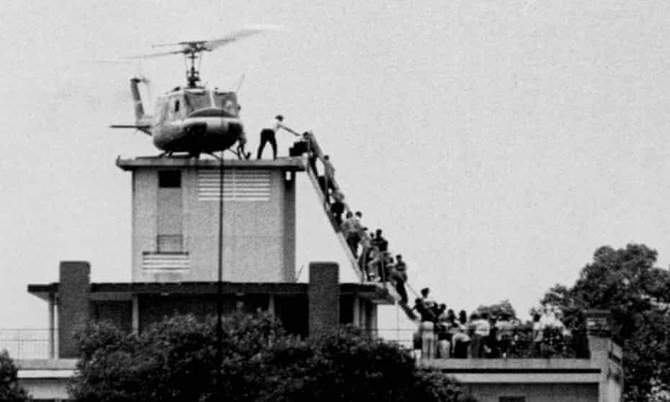
- ARAB NEWS
- 02 Jul 2025

Let me start with a riddle. Country A and country B have bilateral trade that increased 200-fold in the past 25 years to reach $90 billion in 2020. Country A is the second-biggest trading partner for country B and country B is the 10th-biggest for country A. Foreign direct investment from country A to country B has nearly tripled in a decade to reach $2.6 billion.
Both are part of several formal partnerships on regional and economic issues which, according to an official survey, the population of country B holds as the most important. Both countries’ populations hold positive views of each other, as tourism numbers (pre-pandemic) have shown. They also have frequent high-level political level meetings. It is also expected for the relationship to become a “strategic partnership.”
So, if I were to ask you, which is country A and which is country B, could you guess?
Most likely you will think of two countries in the EU. In fact, country A is the US and country B is Vietnam. As we witnessed the messy US departure from Afghanistan, a recurrent theme on social media was to compare it to the withdrawal from Saigon, Vietnam (now Ho Chi Minh City) in April 1975. It is mainly the images of helicopters hovering above the US Embassy and the masses of locals running toward the airport that led to this quick comparison. There is, nevertheless, an undeniable similarity: It is the feeling of betrayal and hopelessness. The local population, which adhered to this new vision for Afghanistan, has seen the corrupt politicians flee and the US remove its flag from its embassy, and now faces a humanitarian crisis.
The comparison might be an oversimplification, but it is symbolic. The Vietnam war was much more violent and destructive for both sides. Yet Vietnam and the US now have a positive relationship following the resumption of ties in 1995. This is a reminder that in politics there are no eternal enemies and no eternal friendships. And, today, the Taliban represent Afghanistan in the short to medium term at least. And so, one could ask, will we any time soon see the US and Afghanistan under the Taliban engage in positive and constructive relations? Have the Doha talks at least planted a potential seed for this?
The main question is, how will the Taliban act in coming years. Will they focus on domestic policies, or will they encourage their extended tribes in neighboring countries to challenge their own regimes? Will we see the Taliban in Pakistan revolt against their previous supporter and openly attack the regime in Islamabad? Will they open their doors to Europeans or Westerners for military training as we witnessed in the fight against Daesh in Syria and Iraq? It is safe to say that a prerequisite to building new relations will be for Afghanistan to refuse to give terrorist cells sanctuary and to acknowledge human rights.
It is also too early to judge if China is the big winner. Beijing will certainly work with the new regime. It will mainly focus on the development of the railway it needs for its Belt and Road Initiative completing the China-Pakistan Economic Corridor, and may also develop Afghanistan’s rare earth metal mines. That is not an easy task as there have been attacks on Chinese workers in the past. But China will be wary of the Taliban seeking to destabilize neighboring countries in Central Asia or looking to expand their rule beyond their borders. That is something China, as well as Russia, will have difficulty accepting.
Regional organizations play an important role to this extent and can help stabilize the situation. For example, the Quadrilateral Security Dialogue, known as the Quad, the Southeast Asian partnership that includes the US, Vietnam, Australia, India and Japan, is considered one of the most important for both Vietnam and the US. Through trade and exchange, both countries enjoy strong relations that are even more positive for the US. There are obviously frictions and uncertainties. Vietnam is also focused on keeping a balance with China and avoiding any actions that could be viewed as aggressive. Until now Hanoi has been opposed to broad military assistance or similar actions that could be interpreted by China as escalation.
As is the case with Vietnam and relations in Southeast Asia, the same equation will apply in Afghanistan: Balancing relations between the US and a more assertive China.
Khaled Abou Zahr
On a regional and global level, there is still the impact of the current situation in Afghanistan on US foreign policy. There is also the question of how US allies and partners will review and reassess their positions to protect their own interests. Yet, this is not new. Many countries have already started engaging and enlarging their defense and security cooperation to translate this new balance. This trend will now accelerate and amplify. No one wants to be left with crippled military or security capacities in case the US withdraws or changes its policies. This broadening of maneuvers might have started after the so-called Arab Spring for the Middle East countries.
As is the case with Vietnam and relations in Southeast Asia, the same equation will apply in Afghanistan: Balancing relations between the US and a more assertive China. Yet, in essence, both the US and China are seeking the same guarantee from the Taliban, and it relates to security and non-interference. That is consistent with what Russia pursues, too.
Many analysts already say that there has been agreement on this point during the Doha talks, with a commitment from the Taliban. The bigger risk is the emulation by other groups that the Taliban can claim are beyond their control, in which case civil wars will spread like wildfire. Time will tell if that is the case and if Afghanistan will become country C in a future riddle. My bet is it will.